Shel Silverstein — cartoonist, playwright, poet, performer, recording artist, and Grammy-winning, Oscar-nominated songwriter — is best known as the author of iconic books for young readers. His works, which he illustrated himself, are well-known to American readers. Some of his iconic prose works include The Giving Tree (1964) and The Missing Piece (1976).
His poetry collections Where the Sidewalk Ends (1974), A Light in the Attic (1981), Falling Up (1996) and the posthumous Every Thing On It (2011) are all beloved by young readers. Both books and poems from Shel Silverstein contain valuable life lessons that can help us live better lives.
The Voice
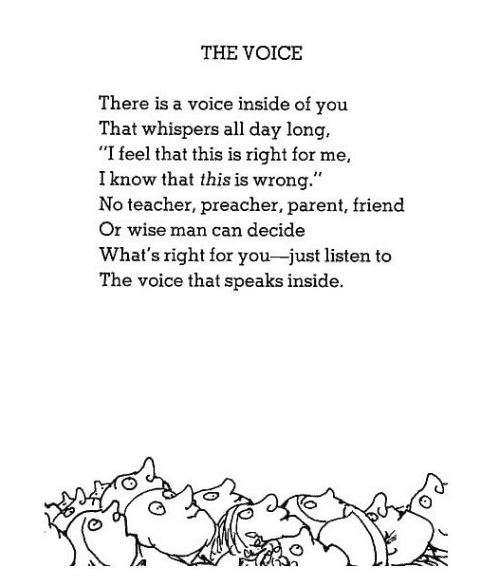
No matter how old we are, there’s always pressure to conform to others’ expectations. In this poem, Silverstein reminds us to stay true to ourselves. Ultimately, we — not those around us — are the only ones who know what’s best for us.
Poet’s Tree

Sometimes, it seems like life is always demanding more of us: work more, study harder and earn more money. In this poem, Silverstein reminds us that it’s just as important to enjoy life’s slow moments.
See also: Going Through A Quarter-Life Crisis? Read These Books
Masks

This poem — published after Silverstein’s death in 1999 — encourages us to accept ourselves. It also reminds us that self-acceptance is a prerequisite to acceptance by others. Sharing our authentic selves with others is the only way to have real relationships with them.
Listen To The Mustn’t’s
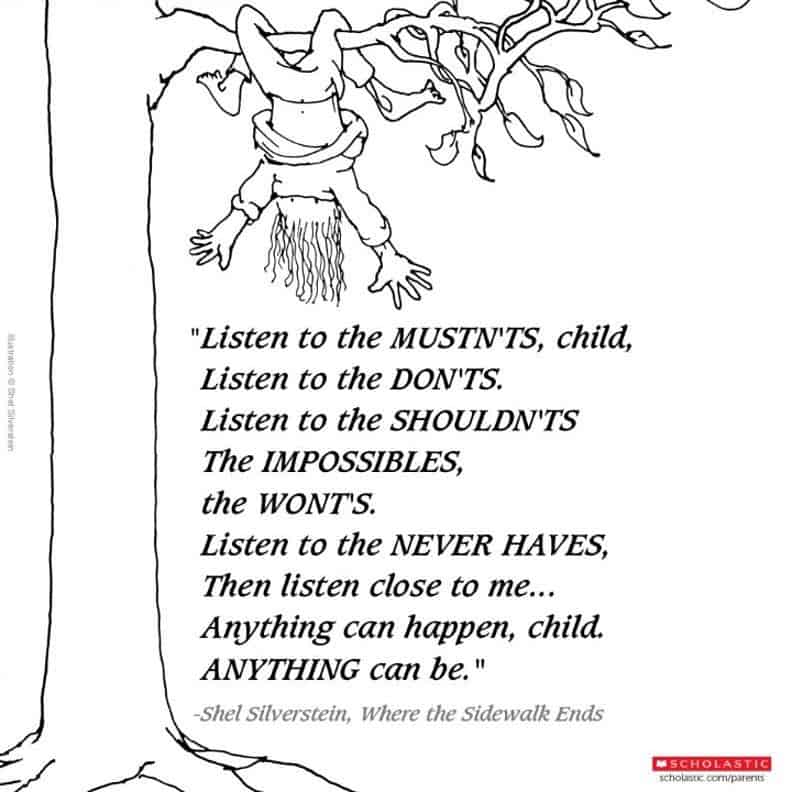
For anyone who’s ever doubted themselves or been underestimated by others, Silverstein reminds them that “anything can be.” This call to action for doers and dreamers still rings true today.
Zebra Question
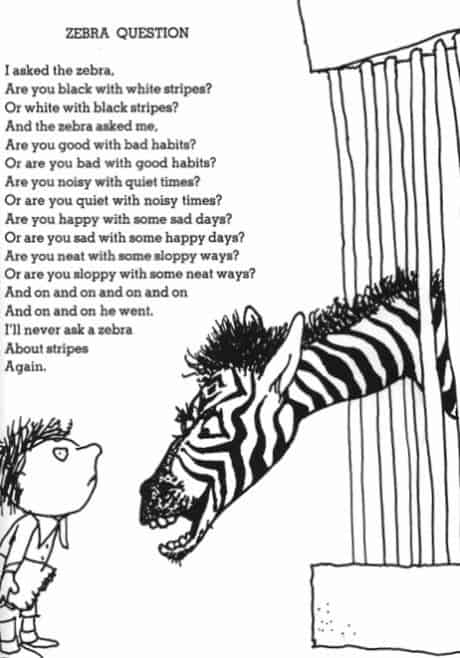
In this poem, Silverstein reminds us that while it’s easier to categorize people by neat labels, it’s truer — and better — to get to know them as individuals. This lesson is especially applicable in today’s current environment.
How Many, How Much
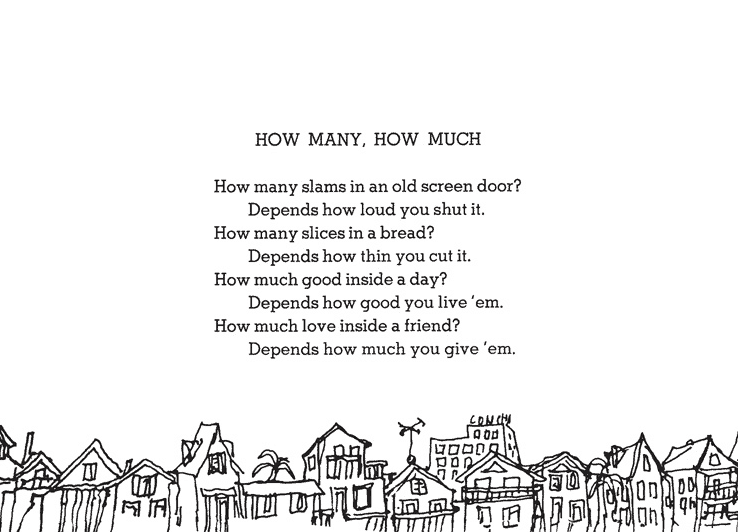
Friendship is a two-way street, and this Shel Silverstein poem reminds us of that. Investing in our friends by giving in our friendships is the only way to ensure that we’ll have good friendships.
The Oak and the Rose
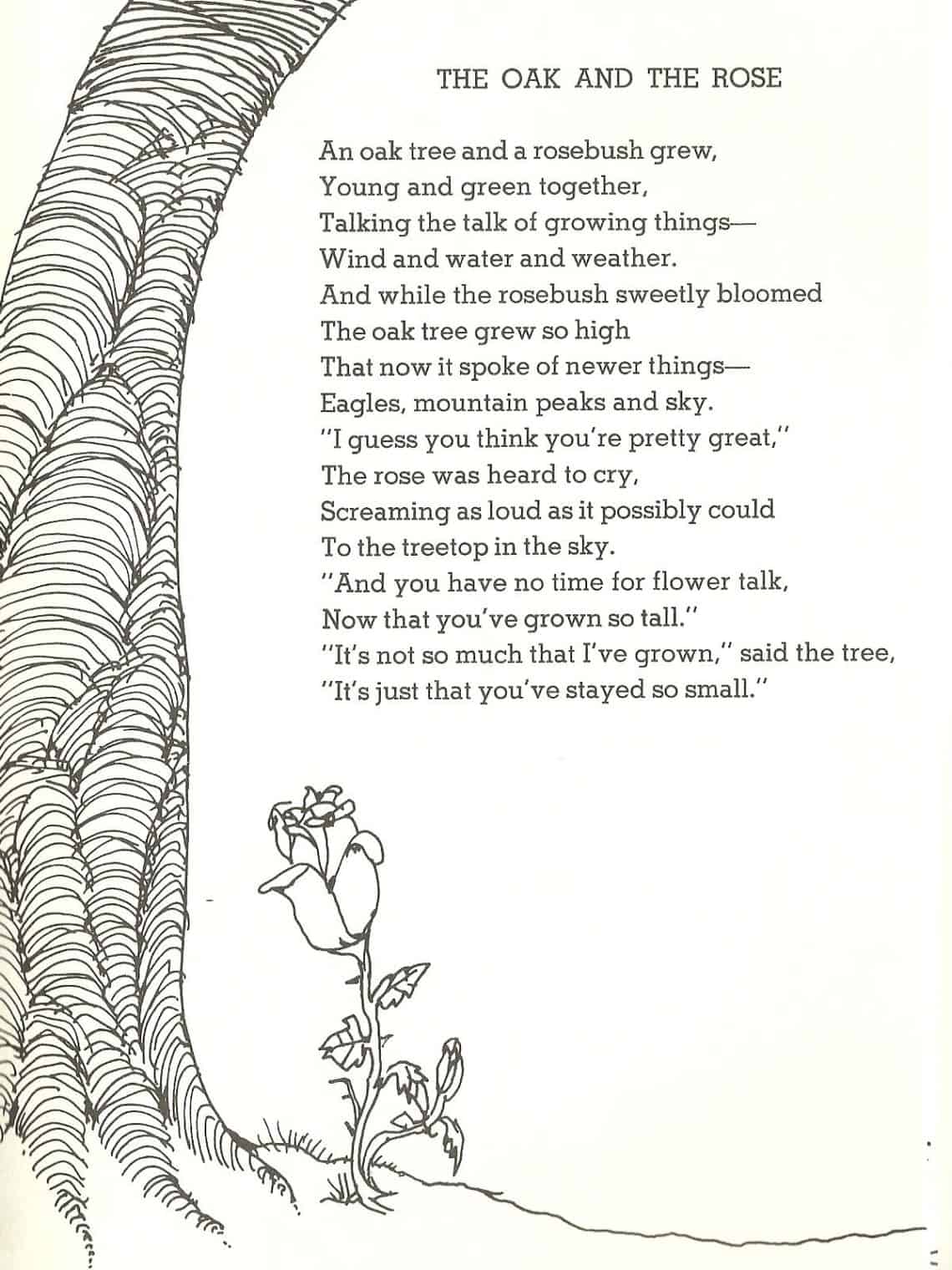
Conversely, it’s important to recognize that friendships change over time. People who were once much like ourselves may grow and change to be very different. However, even when that’s the case, that doesn’t preclude friendship.
Magic
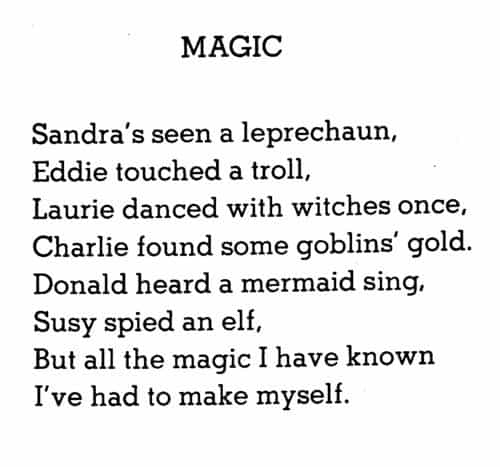
Here, Silverstein implores us to make our own magic. By this, he means that our lives are up to us. Regardless of what people around us are doing and accomplishing, we’re solely responsible for the trajectory of our own lives and our happiness.
When I am Gone
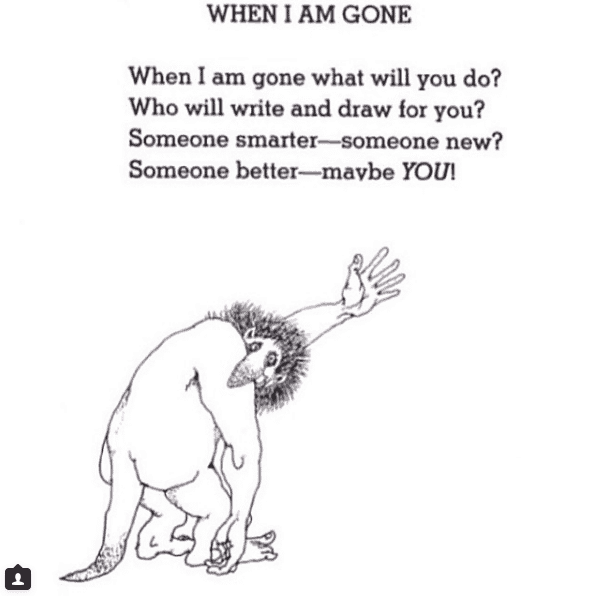
This poem — which was fittingly published in the posthumous Every Thing on It — poignantly reminds us that a loved one’s death isn’t the end. While those we love may leave us, we’re still able to live full lives after their loss.
Melinda Mae
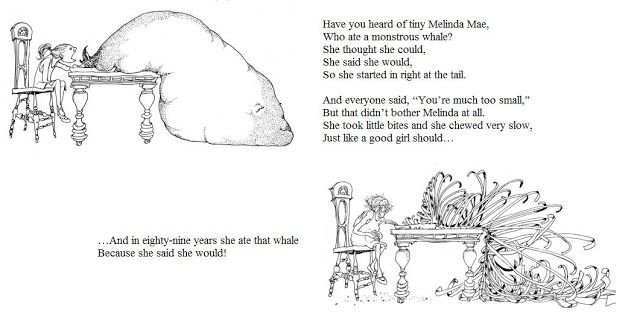
This humorous poem illustrates an important life lesson: no matter how big the task, perseverance leads to success. While we might not be eating whales, we should all approach life’s challenges like Melinda Mae: with patience and faith that we’ll achieve our goals.
Diving Board
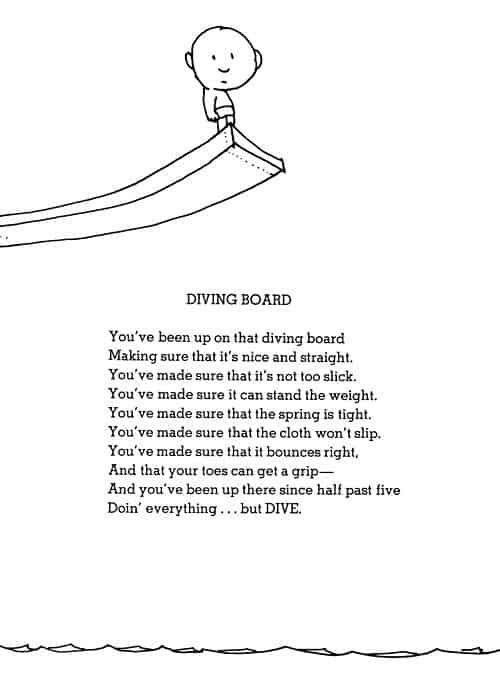
Sometimes in life, there’s nothing to do but to dive right into a challenge. This poem by Shel Silverstein reminds us of that fact.
Lester
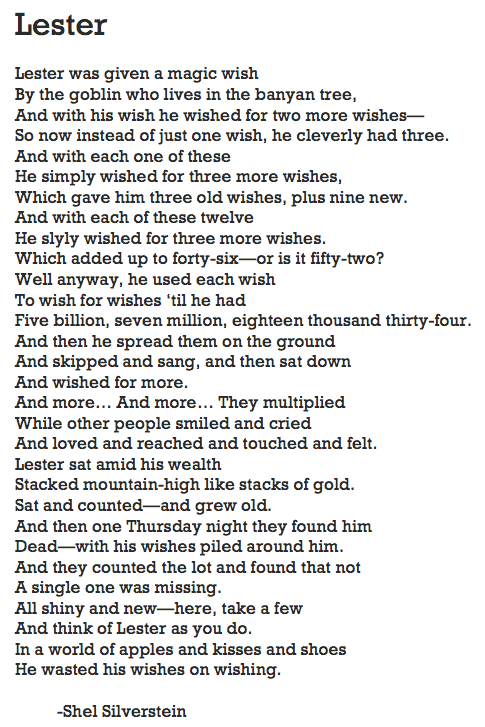
Life isn’t all about material things. In this poem, Shel Silverstein reminds us that things — no matter how nice — can’t make us truly happy. Rather than wasting our time on wishes, we need to truly live.
Writer Waiting
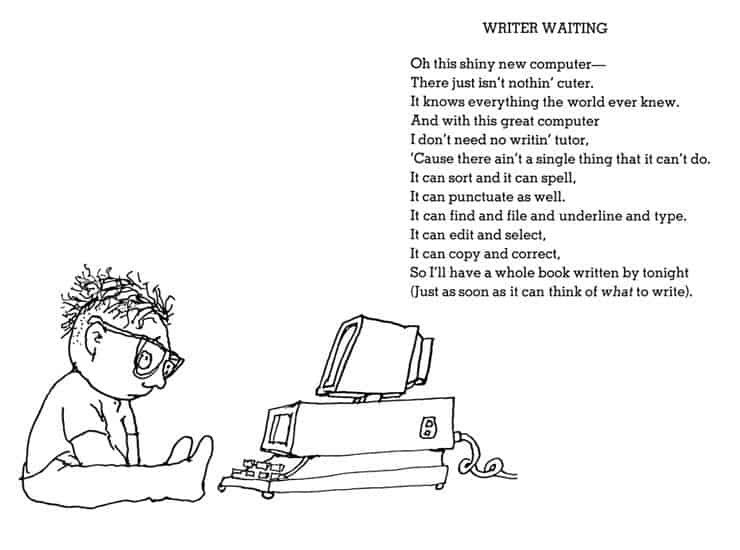
As any professional essay writer will tell you, the only thing that can get you through writer’s block is simply to write. More broadly, Silverstein reminds us that getting started is sometimes the hardest part of getting something done.
See also: Embrace Your Inner Girlboss With These Career Books
Bonus: The Giving Tree
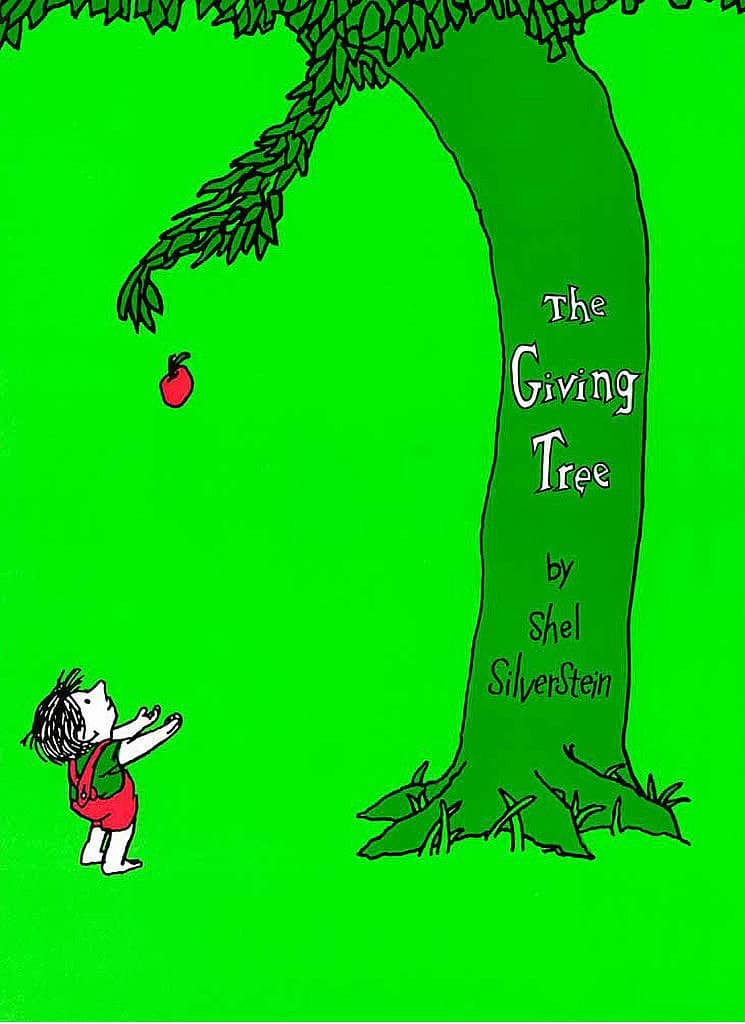
While it’s not a poem, The Giving Tree is one of Silverstein’s most well-known works. No mention of the life lessons in Silverstein’s work is complete without this classic children’s book.
While interpretations of the book vary (with some arguing it’s a cautionary tale about an abusive relationship and others arguing it’s about selfless love), its importance in Silverstein’s canon can’t be denied. Personally, I believe The Giving Tree is a cautionary tale about the environment.


